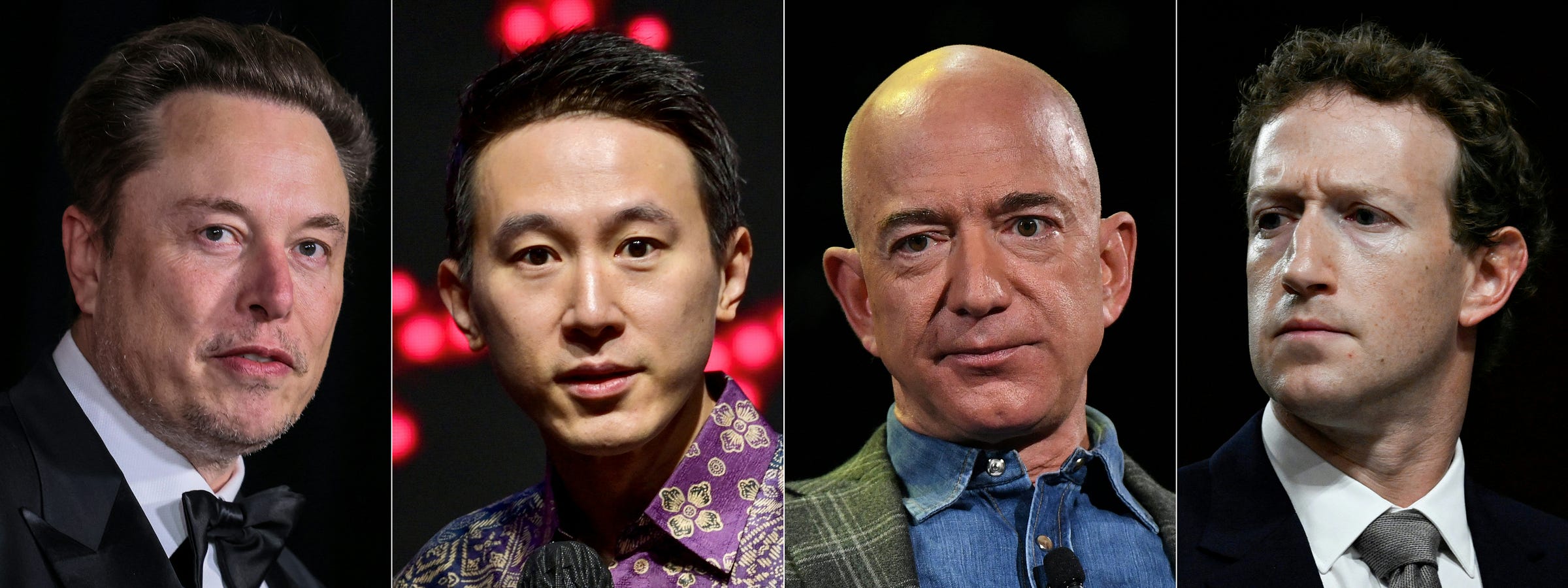The Tik-Tok Flip-Flop and the Spectacle of the Big Tech ‘Supplicants’
The Trump-Musk-China convergence is a national security risk just like the app.

IT’S BEEN QUITE THE TURNAROUND for Donald Trump. Less than five years ago, in August 2020, the then-president said TikTok’s vast and automated data collection “threatens to allow the Chinese Communist Party access to Americans’ personal and proprietary information—potentially allowing China to track the locations of Federal employees and contractors, build dossiers of personal information for blackmail, and conduct corporate espionage.”
Trump’s warnings came in an executive order that concluded, “The United States must take aggressive action against the owners of TikTok to protect our national security.” He quickly followed up by ordering parent company ByteDance to sell or spin off its U.S. TikTok business within ninety days.
President Joe Biden revoked the order, but he and most U.S. leaders, lawmakers, and officials still consider TikTok’s Chinese ownership a major risk and want TikTok sold or banned. Congress last year overwhelmingly passed a law to that effect with a January 19, 2025 deadline, Biden signed it, and on Friday the Supreme Court—citing “well-supported national security concerns”—upheld it.
Trump has now decided he wants to be a savior for the 170 million Americans who reportedly have TikTok on their phones and the hero of the app’s survival saga. When TikTok paused service on Saturday night, he immediately promised a new executive order buying more time for a deal to be made. By Sunday afternoon the app was back. The editor-in-chief of the tech publication the Verge aptly summed up the bizarreness of the moment:
What kind of deal does Trump have in mind? He’s thinking outside the box. Way outside. Twice on Sunday, once in the morning and again at an afternoon rally, he even floated joint U.S.-Chinese ownership, split 50–50.
ONE STARK INDICATOR of the shifting dynamic on China and big tech is how Trump and his colleagues treated Republican Rep. Mike Turner, recently and abruptly dumped as chair of the House Intelligence Committee. In March 2023, after testimony from TikTok CEO Shou Zi Chew, he said U.S. users were “surrendering” data that could be weaponized. “What we know is companies that are controlled by China are, of course, controlled by the Communist Party in China,” said Turner. “There’s no division, as there is in our country between government and commerce.”
Less than two years later, is that last sentence even true? What if the U.S. government really does become half-owner of TikTok, as Trump has floated? Trump shadow president and X owner Elon Musk has already managed to kill a policy that would have damaged his Tesla investments in China. Now he’s the leader of a fake government efficiency “department” that will no doubt spare his SpaceX contracts from any proposed cuts.
Musk and other tech titans, among them Chew, Jeff Bezos, and Mark Zuckerberg, were scheduled to sit on the dais with Trump in the original plan for an outdoor inauguration. They’ll all be in the Capitol Rotunda now. If a picture’s worth a thousand words, neither one of those shouts ‘division between government and commerce.’
Steve Bannon, who has many axes to grind, said Sunday on ABC’s This Week that it’s wrong to think of the tech billionaires as oligarchs running the country. Instead, they are “supplicants”: “President Trump broke the oligarchs, he broke them and they surrendered,” Bannon said.
That doesn’t make the close relationship any less disturbing, especially as so many of them rush to do what they think Trump wants so they can not just avoid his abuse and punishment, but also win his favor and make sure their business empires thrive.
Equally disturbing, if not more so, is Trump’s strange combination of hostility to China (threats to slap tariffs on up to 60 percent of its exports to America) and apparent eagerness for joint U.S.-China ownership of TikTok.
Does he not remember the bipartisan ridicule he endured in 2017 when he said he had talked with Vladimir Putin about forming “an impenetrable Cyber Security unit so that election hacking, & many other negative things, will be guarded”? And then again in 2018 when Putin said after meeting with Trump that the two nations should create a “joint working group on cybersecurity” to determine whether Russia meddled in the 2016 election?
Spoiler #1: Russian hackers and disinformation experts did interfere in the 2016 election, big time, on Trump’s behalf. Spoiler #2: He lost the 2016 popular vote but he won the election—maybe in part because his campaign manager gave internal swing-state campaign data to Russian intelligence. Who knows!
China, which sat out the 2020 election, worked to help Trump last year using disinformation, propaganda, and fake social accounts. Now it’s moving into disruption of state and local election races, CNBC reports. This is in addition to Chinese companies and individuals staging massive hacks of phone records and government agencies in the last few years.
Former GOP Rep. Mike Gallagher, who used to lead a House committee on the China threat, offered a levelheaded TikTok assessment last week. The goal of Congress was not to ban TikTok but to make it “safe from Chinese Communist Party control,” he said. “Had ByteDance spent as much time pursuing a divestment as it had trying to manipulate our political system, the threat of TikTok vanishing on Sunday would not exist. If the app goes dark, ByteDance will have no one to blame but itself.”
Gallagher did say Trump has a chance to negotiate “the deal of a century.” But I would not view joint U.S.-China custody of an enormous social media platform as that deal. It’s way too close to sleeping with the cyberenemy, and marrying government to business. Speaking of which, a Musk purchase of TikTok—possibly to be united with X—is also under discussion and would also be appalling. His relationship with Trump already smacks of an unholy union, and his conflicts of interest are boundless.
To recap: Musk loves Trump like a bro, he’s invested heavily in China, and he’s a superspreader of offensive, baseless, and simply wrong posts on the social platform he already owns. Not shockingly, Trump, Musk and China are reportedly receptive to the Musk option.
That’s an excellent reason to pray it doesn’t happen, and to hope cooler national security heads keep us out of a U.S.-China TikTok partnership. It would not be the deal of the century. It could, in fact, be the most dangerous deal of our lifetimes.






